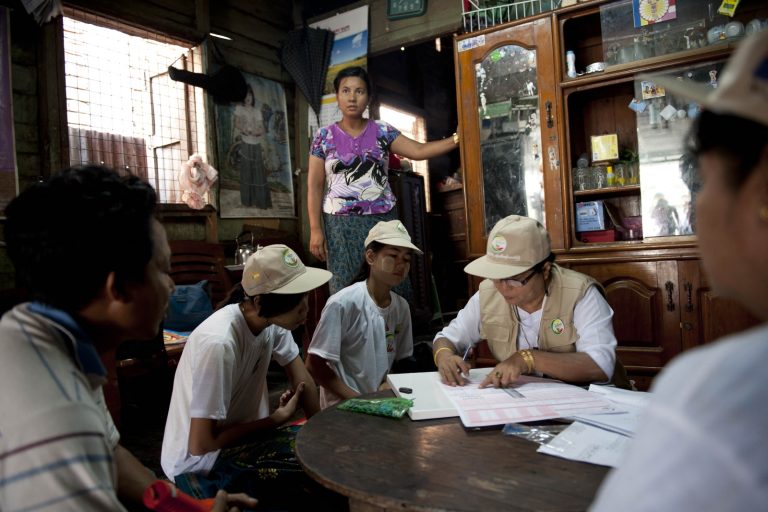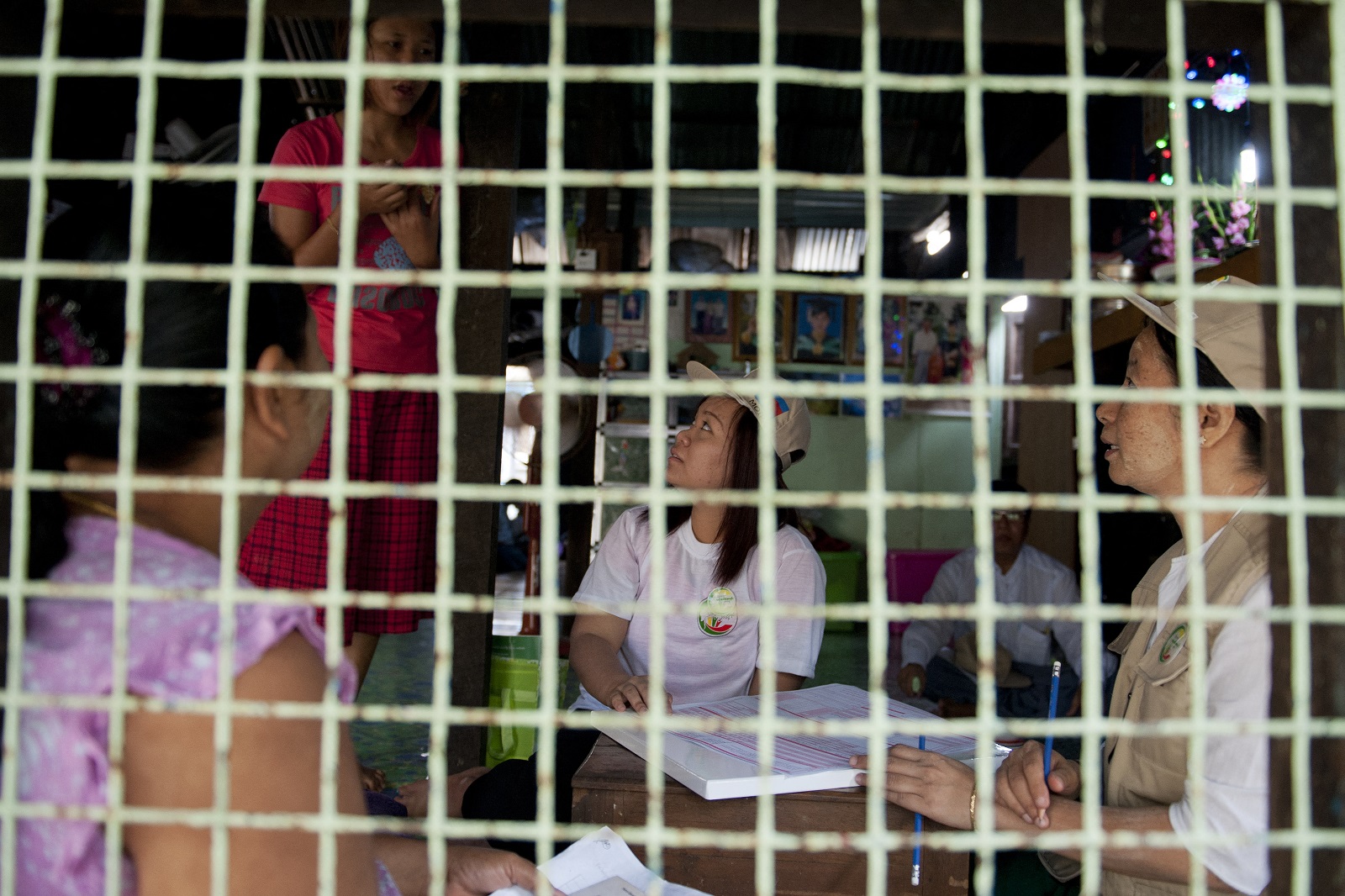The National League for Democracy has gagged its election candidates because big opposition parties have good reason for demanding restraint from parliamentary hopefuls during the campaign season.
Before the official start of the election campaign on September 8, there was an expectation that the efforts of political parties to woo voters would resemble the revellry of the Thingyan traditional new year water festival. I will explore reasons why the campaign launch failed to meet expectations. I will also analyse the reasons for the strict campaigning guidelines issued by some parties and predict how the electioneering will unfold.
Before the campaign period officially began, National League for Democracy leader Daw Aung San Suu Kyi had visited parts of the country to do party organisation work and give voter education speeches. Election laws permit parties to do organisational work at any time but limit campaigning to 60 days before the vote. Union Election Commission chairman U Tin Aye confirmed that Daw Aung San Suu Kyi’s party organisational tours were permitted under the rules.
However, there was controversy over the activities of some Union Solidarity and Development Party candidates in their constituencies in Nay Pyi Taw and elsewhere before September 8.
Campaign launch day was fairly quiet, though some big parties organised processions of vehicles blaring party songs and slogans.
On September 11, the NLD banned its candidates from talking to the media for the rest of the campaign. A spokesman said the gag order was aimed ensuring that candidates did not accidentally contravene the party’s policy.
Support more independent journalism like this. Sign up to be a Frontier member.
U Tha Win, the Yangon Region secretary of the USDP, said its candidates had been told to avoid verbal attacks on other parties. “An election campaign is not like a football match, with confrontation between the two sides; it’s like a golf tournament in which each player tries his best to win,” he said.
U Sai Aik Pao, the chairman of the powerful ethnic minority Shan Nationalities Democratic Party, said its 211 candidates had been instructed not to respond to criticism.
The big political parties are taking pains to avoid breaches of campaign rules because they want to avoid the possibility of complaints that could lead to election victories being invalidated by the UEC. The result is timid campaigning.
The US-based Carter Center drew attention to this issue in an August 19 report when it made recommendations aimed at ensuring that complaints about alleged breaches of campaign rules are handled impartially and truthfully by post-election tribunals.
The UEC does not have the confidence of either political parties or the public and there is concern about the tribunals, which are appointed by the commission.
If opposition party candidates win by a landslide they might be targets of complaints by political rivals. It is possible that the tribunals might uphold complaints against winning opposition party candidates, handing victory to second-placed USDP rivals. This helps to explain why there have been proposals for independent academics and representatives of civil society organisations and political parties be appointed to the tribunals.
In its recommendations concerning post-election complaints procedures, the Carter Center expressed reservations about the procedure for appeals to the UEC about decisions made by the tribunals. “Decisions of the UEC are nal and not subject to judicial review, which is not in accordance with international standards guaranteeing the right to an effective remedy,” it said.
Deficiencies in the post-election complaints and appeal procedure are among the reasons why political parties are not campaigning more actively. They do not want to jeopardise their chances of winning by providing opportunities that could benefit USDP candidates.
The campaign period is likely to be fairly subdued, with few problems likely to arise that involve political parties and their candidates.
If problems do arise, they are more likely to involve religious and social organisations.






